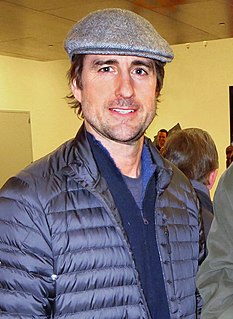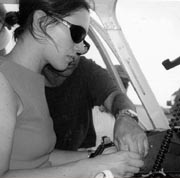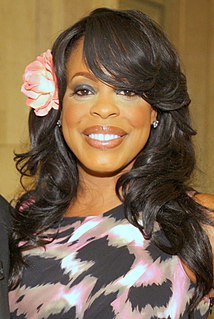A Quote by George Meyer
The only rule was that the stuff had to be funny and pretty short. To me, the quintessential Army Man joke was one of John Swartzwelder's: 'They can kill the Kennedys. Why can't they make a cup of coffee that tastes good?' It's a horrifying idea juxtaposed with something really banal-and yet there's a kind of logic to it. It's illuminating because it's kind of how Americans see things: Life's a big jumble, but somehow it leads to something I can consume. I love that.
Related Quotes
Sweating the small stuff is important in boxing and life. On a movie, we have production assistants who're 18 and 19 years old. If someone asks you for a cup of coffee, and you bring them a cup of coffee that's cold, I make a big deal of that. I make a really, really big deal of that. You have to pay attention to details.
What's love? Something that lasts a week or a month and that's all you can except? Or is it just that some loves have a short shelf life? You know, like yogurt: after a week or two they go bad. And how do you recognize the other kind of love, the kind that isn't like yogurt? The kind that's more like... I don't know, like peanut butter, that lasts forever and always tastes good?
No matter what kind of significance leads you do, you learn a lot from doing schlock. The setup's the same, only you have to work twice as hard to make it the best as you can make it. And a lot of acting is not about acting but technology. Are you standing in your light? Are you out of your light? And if the sound guy's near you, please don't put the coffee cup down at that moment, because you're covering your lines. All of that stuff's going on in your head, so you learn a lot by doing whatever. In my view, never worry that something's not prime - A, number - one stuff.
We're living history all the time, in the papers, in the news, you think about stuff and it goes into your brain and you think about it and it comes out somehow. You have an idea; you've heard a phrase, or you're angry, or something disturbs you, or something seems paradoxical to you, you explore that idea, much like a writer would explore maybe an idea through metaphor. Maybe artists use their vehicle to explore ideas, so I think the things that interest me are the kind of idea of continuous change and how nothing stays the same and it's always disintegrating into something more.
Barry Crump wrote a lot of books and they were really special. They were kind of the quintessential, mild for the most part, kind of southern man, kind of the true heart of what it meant to be a Kiwi kind of farmer; very kind of outdoor man living off the land. That kind of thing, you don't see so much anymore these days with everyone being metrosexual and lattes and laptops.
I had a big fight about how to make something come into the real, to make it physical. It sounds really antique, but it's a question of, how do I make this idea happen? You can't just will it into existence. You have to educate, you have to persuade, you have to seduce, you have to do all this stuff to make something three-dimensional and happen. It's not just a concept. It's actually a reality.
Digression is my passion. I love telling the main stories, but in some ways, what I love most is using those narratives as a way of stringing together the interesting stories that people have kind of forgotten, and that are kind of surprising. The problem is, how do you pare stories away so that the book doesn't become a distracting jumble of material, and readers lose focus? In my experience, there's really only one way to do that. I pack it all in with the rough draft, then count on myself and my trusted readers to tell me what's good and what's not good.
I don't find the same things funny that many other people seem to find funny. I don't really respond to sex jokes and things like that, and some of my friends look at me and go, "Come on, Nic, that was my best joke. Why aren't you laughing?" I go, "I really don't know why I'm not laughing. I'm sort of out of sync with it." So I'd have to find something that was really about weird human behavior for me to laugh.



































